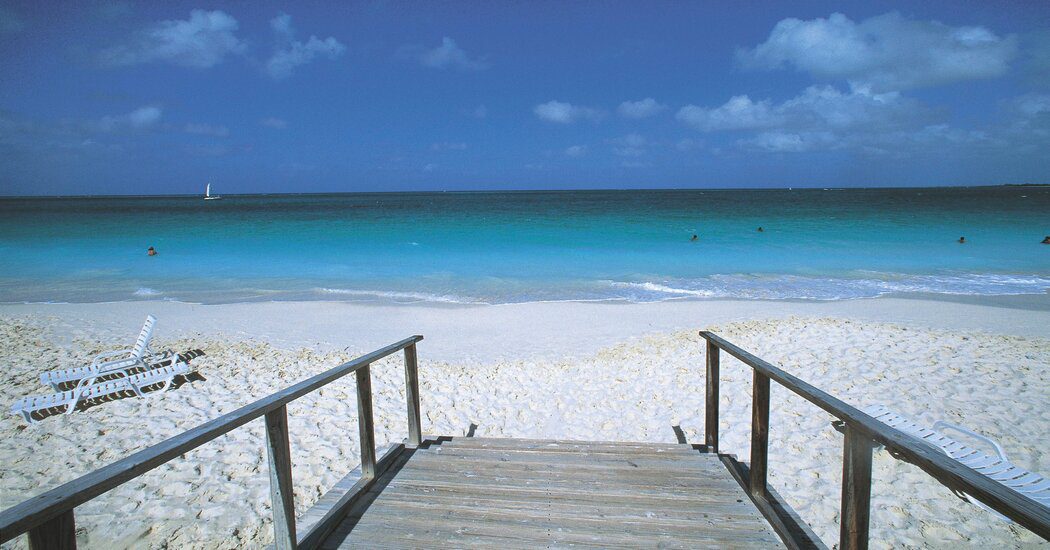

A tourist in the Turks and Caicos Islands recently experienced an unexpected encounter while trying to photograph a shark in shallow coastal waters. Unfortunately, she was bitten and subsequently flown to a hospital for medical treatment, according to local officials.
The incident took place on February 7. The tourist was engaged in an attempt to capture images of the shark, which was reported to be approximately six feet in length, although the species remains unidentified. After her treatment at a local hospital, she left Providenciales, a 38-square-mile area renowned for its beautiful beaches and clear turquoise waters, favored by snorkelers and sunbathers alike.
Her name has not yet been disclosed, and officials have not provided details regarding the severity of her injuries. Following the incident, the beach was temporarily closed but reopened on February 9 once the shark was located in deeper waters.
The Turks and Caicos Islands, a British territory in the Caribbean, is known as a sophisticated vacation hotspot. Shark bites are extremely infrequent and are generally considered accidents. Experts assert that sharks can inflict serious injuries when they mistakenly identify humans as prey.
In the previous year, the International Shark Attack File at the University of Florida documented 88 confirmed or potential shark bites globally, with 24 of these categorized as provoked, meaning the interaction was initiated by humans. Among those reports, four fatalities occurred. Notably, there was one non-fatal shark bite recorded in Turks and Caicos in 2022.
Gavin Naylor, director of the International Shark Attack File, mentioned that it’s premature to determine whether the recent incident was provoked or unprovoked. Chris Stefanou, a New York fisherman and shark conservationist, indicated that photographing sharks can be risky, as the sharks might mistake cameras or phones for bait.
“Sharks, like other predatory animals, can misinterpret these objects as food,” Stefanou explained, clarifying that sharks do not perceive humans merely as prey.
This incident was not isolated; on the same day, two Americans reportedly sustained injuries from a shark encounter in Bimini Bay, located in the northern Bahamas, as confirmed by the Royal Bahamas Police Force. Naylor remarked that having two shark bites in one day within the same region was unusual and noteworthy; however, he added that it remains uncertain whether this indicates a concerning trend. The International Shark Attack File noted a decrease in confirmed unprovoked shark bites, which fell to 47 last year, down from 69 the prior year.








